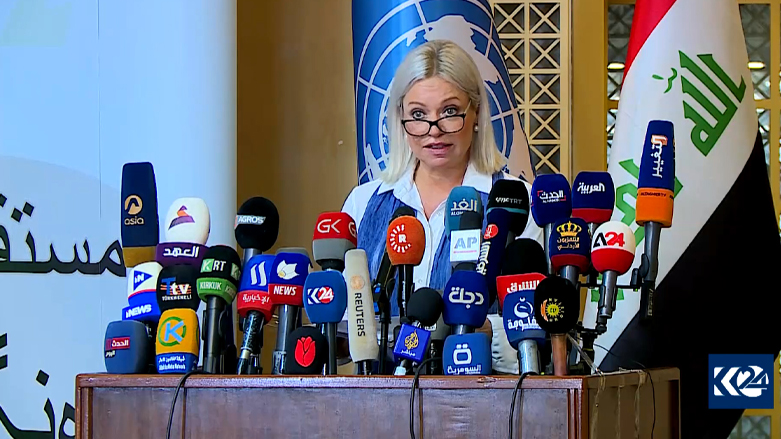UNAMI monitors hate speech against female candidates in Iraq's elections
Female candidates face increasing levels of hate speech, violence, and blackmail intended to force them to withdraw their candidacy.

ERBIL (Kurdistan 24) – The United Nations Assistance Mission for Iraq (UNAMI) and civil society groups have received reports of politically motivated gender-based violence and hate speech against women running in Iraq's elections, the Special Representative of the Secretary-General for UNAMI said on Tuesday.
In a press conference held in Baghdad, Jeanine Hennis-Plasschaert outlined steps UNAMI will take to ensure that the upcoming Iraqi elections, scheduled to take place on October 10, are free and fair.
Female candidates face increasing levels of hate speech, violence, and blackmail intended to force them to withdraw their candidacy.
"We are working with civil society organizations to monitor and report political gender-based violence and hate speech against female candidates," Hennis-Plasschaert said.
Read More: New study claims rise in male victims of domestic violence in Iraq
UNAMI is also providing small grants to local non-governmental organizations to provide voter education to first-time voters.
The organization will also send 130 international experts to observe the electoral process "in advance" and "on election day."
"The UN is deploying a much bigger team to support the elections," Hennis-Plasschaert said. "In effect, this is one of the UN's largest electro-technical assistances worldwide with five times as many UN personnel as in 2018."
Despite some political parties boycotting the elections, UNAMI "believes that they have the potential to be different from elections in 2018."
In October, over 3,000 candidates will vie for 329 parliamentary seats.
The UN diplomat also highlighted a few new electoral measures that Iraqi election authorities had put in place. As part of these new measures, a citizens' electronic voter card will be confiscated and disabled for 72 hours after they cast their vote to prevent any "misuse", Hennis-Plasschaert explained.
"Mobile phones and cameras, will this time not be allowed inside voting booths," she added.